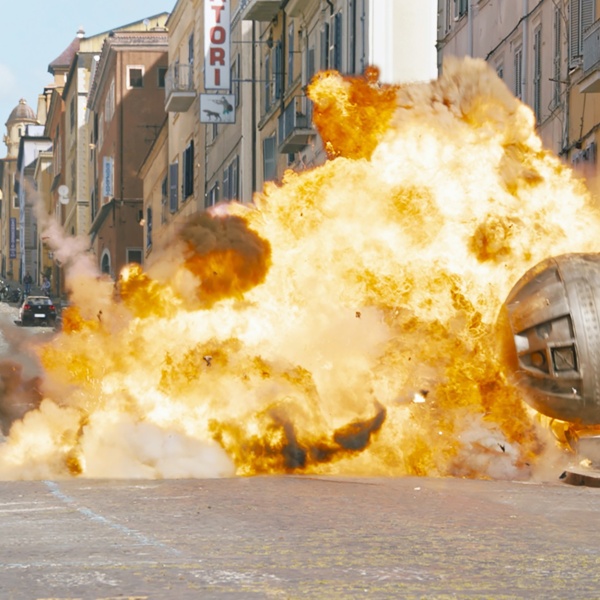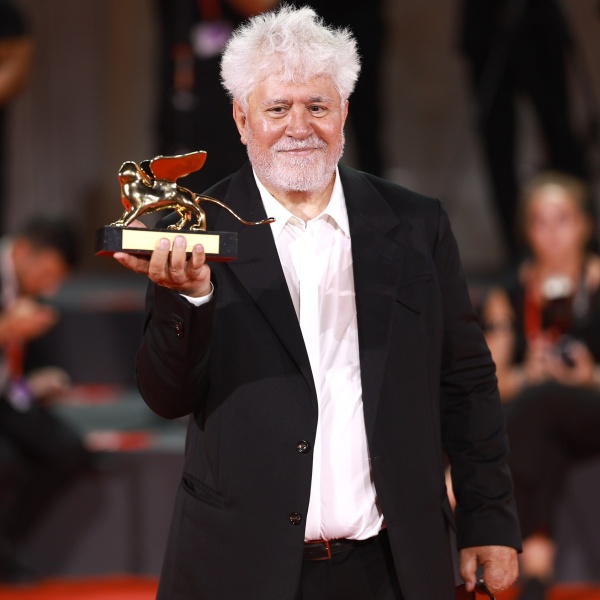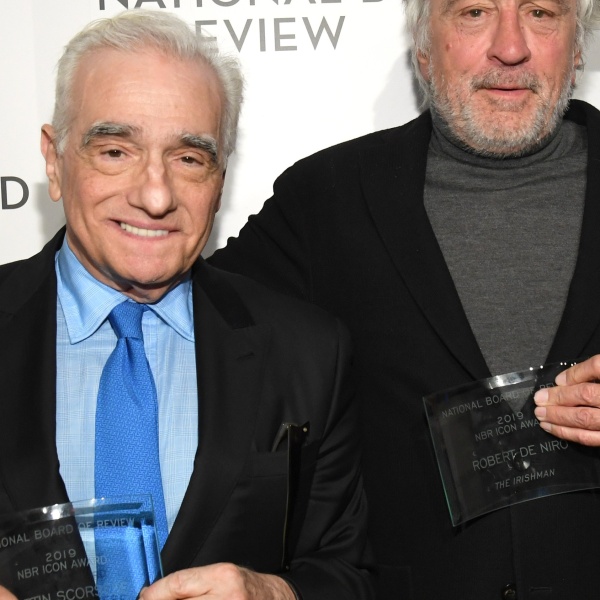
When we interviewed Danny Boyle a few months back, around the time that his humanist survival tale “127 Hours” was hitting screens, we overheard him talking to someone about his upcoming “Frankenstein” play. “Would it play on the West End?” the person asked, referring to the London version of Broadway. “No, no, no,” the typically exuberant Boyle said. “It’s a little too extreme for that crowd.”
Now, having seen the play, we understand what he was talking about; Boyle’s “Frankenstein” (written by Nick Dear) is pretty outrageous – it’s violent, bleak, boundary-pushing stuff that’s primarily concerned with aspects of sexuality that would probably make proper English audiences gasp in horror and revulsion. Which is to say, it’s totally brilliant.

Firstly, though, a bit about the production itself: staged at the National Theatre in London, it stars Boyle alum Jonny Lee Miller (from “Trainspotting“) and Benedict Cumberbatch (coming off the outstanding BBC series “Sherlock“) and runs through the spring. In an ingenious ploy, the actors switch roles each night –- so one night Miller will be the deformed creature, while Cumberbatch will play the megalomaniacal scientist, and the next night the roles will be flipped. In the simulcast to movie theaters we saw last week, it was Miller as the monster (his shaved head a patchwork of scars) and Cumberbatch as the mad doctor. It’s hard to theorize how the other configuration would work, but we were happy with the alignment we got to witness.
The play gets off to a staggering start, as what appears to be hundreds of individually placed light bulbs, hanging from the ceiling and controlled by some sort of computer program, alight to simulate the lightning that gives the monster life. Thunder crashes and the propulsive score by British dance kingpins Underworld surge and a monster is born. And for the first twenty minutes or so all you see is the monster – as he gains essential motor skills and learns to walk, crawl, and eventually (through cruel human interaction) talk.
This shift in perspective is a welcome change from most of the adaptations of Mary Shelley‘s immortal work, which tend to focus on the monomaniacal Dr. Frankenstein and not his inhuman creation. In fact, after a large section where the creator falls under the guidance of a helpful (and blind) farmer, the doctor doesn’t reenter the play until around the halfway mark. It’s then that things get significantly weirder and more intense, with a heavy emphasis on the darker aspects of human sexuality.
By the time Frankenstein shows up, the creature has become infinitely more complex and more self-aware. He wants the doctor to build him a bride, and while the doctor is reluctant (for obvious reasons – two murderous creatures are always worse than one), he’s quite scared too. The creature, sadly, says nothing about giving his future bride a crazy hairdo with a shock of white.
Stage-wise, “Frankenstein” is a marvel, with large sections of the stage falling away to reveal new locations or, occasionally, a gaping pit. During sections where the creature is outside, there are long strips of actual grass that streak the stage. Transitions are accentuated by the clanging Underworld music, with lighting cues that emphasize not only the ghoulish nature of the material, but the internal struggle of the characters, between light and dark, good and evil.
As the play zooms towards its conclusion, both main characters show themselves to be way more complex. While the doctors toils away on his new creation, his fiancé (Naomi Harris, another Boyle team player from “28 Days Later” and a bold, color-blind casting choice) wonders why he doesn’t show her physical affection. It’s almost immediately clear that the central conflict will mutate into something more perverse and sexual. If Frankenstein is a homosexual, then the monster is even more of an “other” since he has heterosexual desires. Frankenstein acknowledges and fears that his abomination not only has the ability to please his fiancé better than he ever could, but, in his psychotic and vindictive state, actually act on it.
The last act is primarily concerned with the gamesmanship between the two characters, as Boyle pushes things further and further into uncharted and wholly uncomfortable territory. It’s brilliantly staged, for sure, and cuttingly written, with performers who are more than up to the task. But Boyle, who got his start on the stage but hasn’t delved into the medium in 15 years, manages to corral everything together assuredly and gracefully. If “Frankenstein” was just outrageous, then it probably would have been quite bland; a tasteless shock show. Thanks to Danny Boyle, though, it’s a deeply felt and fully realized psychosexual nightmare, one that will likely haunt you long after you’ve left the theater. [A-]






